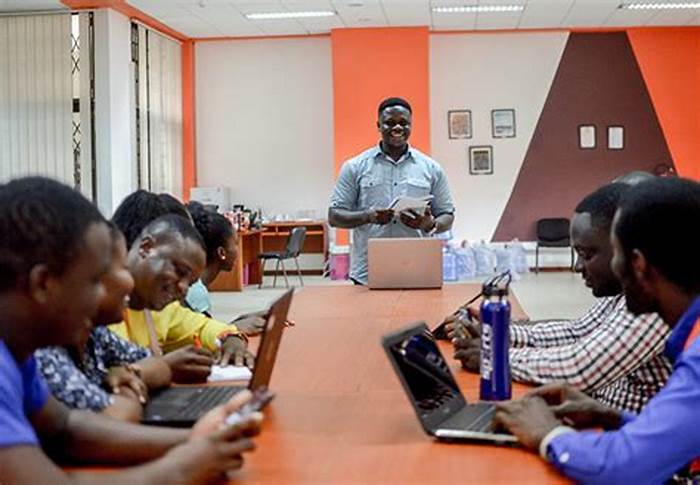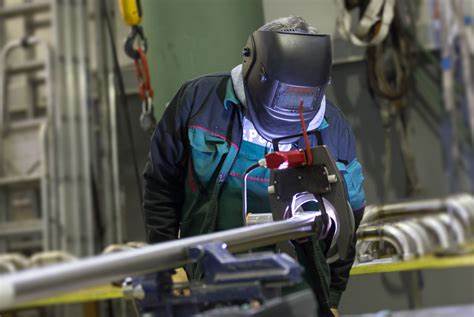Relocating for a job opportunity can be exciting, but what about your partner? Can they come with you? The good news is that many countries offer visas for spouse or fiancé(e) of individuals who have obtained work permits for their job positions. However, the specific requirements and procedures vary significantly depending on your nationality, your partner’s nationality, and the country you’re moving to.
Navigating the intricate world of job visas for spouse and fiancé(e) can feel like deciphering a foreign language. This blog post will provide a general overview of job visas available for spouse and fiancé(e) of foreign workers.
Understanding the Basics
Embarking on an international career adventure often involves more than just securing a job offer; it’s about building a new life abroad with your loved one. This is where understanding the intricacies of job visas for spouse and fiancé(e) becomes crucial.
These visas are designed to allow individuals who have obtained work permits in a foreign country to bring their spouse or fiancé(e) to join them. Here’s a deeper dive into the fundamental aspects:
Purpose and Scope
The primary purpose of these visas is to facilitate family reunification. They enable spouses and fiancés(es) to legally reside in the host country, often with the right to work, study, and access healthcare and other social services. This ensures that individuals pursuing international career opportunities are not forced to choose between their professional aspirations and their personal lives.
Eligibility Criteria for Job Visas for Spouse and Fiancé(e)
The eligibility criteria for job visas for spouses and fiancé(e) can vary significantly depending on the specific country and visa category. However, some common requirements include:
Valid Marriage or Bona Fide Relationship:
- Spouses: A legally recognized marriage certificate is typically required as proof of the marital relationship. This certificate must be issued by the appropriate authorities in the country where the marriage took place.
- Fiancés(es): Evidence of a genuine and committed relationship is essential. This may involve:
- Travel records: Documentation of previous trips taken together.
- Photographs: Pictures of the couple together in various settings.
- Correspondence: Letters, emails, or text messages exchanged between the couple.
- Affidavits: Statements from friends or family members who can attest to the authenticity of the relationship.
Financial Stability:
Most countries require evidence that the individual with the work permit has the financial means to support themselves and their spouse or fiancé(e) without relying on public assistance. This may involve:
- Sufficient income: Proof of a stable income through employment contracts, pay stubs, or tax returns.
- Savings: Bank statements or other financial documents demonstrating sufficient savings to cover living expenses.
- Assets: Proof of ownership of assets such as property or investments.
Health and Character Requirements:
- Medical Examinations: Applicants may be required to undergo medical examinations to ensure they do not have any communicable diseases.
- Police Clearances: Background checks may be conducted to ensure the applicant has no criminal record.
English Proficiency:
In some countries, demonstrating a certain level of English proficiency may be required. This may involve taking an English language proficiency test or providing evidence of previous education or work experience in English-speaking environments.
Other Specific Requirements:
Some countries may have additional specific requirements depending on the visa category and individual circumstances. These may include:
- Age requirements: Some countries may have age restrictions for certain visa categories.
- Education or professional qualifications: Specific educational or professional qualifications may be required in some cases.
- Intention to return to home country: Some countries may require evidence that the applicant intends to return to their home country after the visa expires.
It is crucial to thoroughly research the specific eligibility criteria for the country and visa category you are applying for. Consulting with an immigration lawyer can also be beneficial to ensure you meet all the requirements and submit a complete application.
Best Countries to Apply for Job Visas for Spouse or Fiancé(e)
Choosing the right country to pursue your international career aspirations is a significant decision, and it’s equally important to consider the well-being and opportunities for your spouse or fiancé(e). Several countries offer favorable conditions for accompanying partners, making them excellent destinations for couples seeking to build a life together abroad. Here are some of the top contenders:
Canada:
- Spouse/Partner Work Permit: Canadian work permits often allow spouses or common-law partners to work without any restrictions.
- Family-Friendly Policies: Canada boasts excellent public education, healthcare, and social services, making it an attractive option for families.
- Strong Economy: Canada offers a robust economy with diverse job opportunities across various sectors.
- Multicultural Society: Canada embraces diversity and offers a welcoming environment for immigrants and their families.
Australia:
- Partner Visa: Australia’s partner visa allows spouses and de facto partners to live, work, and study in Australia.
- High Quality of Life: Australia is renowned for its high quality of life, stunning natural beauty, and outdoor recreational opportunities.
- Strong Job Market: Australia offers a dynamic job market with competitive salaries and excellent career prospects.
- Pathway to Permanent Residency: Partner visas can provide a pathway to permanent residency for eligible individuals.
New Zealand:
- Partner Work Visa: New Zealand’s partner work visa allows spouses and partners to work in New Zealand without any restrictions.
- Beautiful Scenery: New Zealand is a breathtaking country with stunning landscapes, pristine beaches, and world-renowned adventure activities.
- Work-Life Balance: New Zealand is known for its emphasis on work-life balance and outdoor lifestyle.
- Friendly and Welcoming Culture: New Zealand boasts a friendly and welcoming culture, making it an easy place to settle in.
United Kingdom:
- Spouse Visa: The UK offers a spouse visa that allows spouses to live, work, and study in the UK.
- Global Hub: The UK is a global hub for business, finance, and culture, offering diverse career opportunities.
- Rich History and Culture: The UK is steeped in history and culture, with world-class museums, art galleries, and historical landmarks.
- Access to Healthcare: The UK’s National Health Service (NHS) provides comprehensive healthcare coverage for eligible residents.
Germany:
- Family Reunification Visa: Germany offers a family reunification visa that allows spouses and children of individuals with a residence permit to join them.
- Strong Economy: Germany boasts a strong economy and is a leading exporter of goods and services worldwide.
- Excellent Education System: Germany has a world-class education system, offering excellent opportunities for both children and adults.
- Rich History and Culture: Germany is a country with a rich history, vibrant culture, and stunning landscapes.
Netherlands:
- Partner Visa: The Netherlands offers a partner visa that allows spouses and registered partners to live and work in the country.
- Multicultural Society: The Netherlands is a multicultural society with a tolerant and inclusive atmosphere.
- High Quality of Life: The Netherlands offers a high quality of life with excellent infrastructure, healthcare, and social services.
- Cycling Culture: The Netherlands is a cycling-friendly country, promoting a healthy and active lifestyle.
Denmark:
- Spouse Visa: Denmark offers a spouse visa that allows spouses to live and work in the country.
- Work-Life Balance: Denmark is known for its emphasis on work-life balance and its progressive social policies.
- High Standard of Living: Denmark consistently ranks high in international quality-of-life rankings.
- Beautiful Scenery: Denmark offers stunning natural beauty, with picturesque towns, rolling hills, and beautiful coastline.
Sweden:
- Family Migration: Sweden offers family migration options for spouses and partners of individuals with a residence permit.
- Gender Equality: Sweden is a leader in gender equality, offering equal opportunities for women in the workplace and society.
- Social Welfare System: Sweden has a strong social welfare system, providing comprehensive social security and healthcare benefits.
- Beautiful Countryside: Sweden boasts stunning natural beauty, with vast forests, lakes, and mountains.
Norway:
- Family Immigration: Norway offers family immigration options for spouses and partners of individuals with a residence permit.
- High Standard of Living: Norway has one of the highest standards of living in the world, with a strong economy and excellent social benefits.
- Stunning Scenery: Norway is renowned for its breathtaking natural beauty, with fjords, glaciers, and mountains.
- Outdoor Activities: Norway offers a wide range of outdoor activities, including hiking, skiing, and fishing.
Finland:
- Family Immigration: Finland offers family immigration options for spouses and partners of individuals with a residence permit.
- Education and Healthcare: Finland boasts a world-class education system and excellent healthcare services.
- Nature and Recreation: Finland is a land of forests and lakes, offering ample opportunities for outdoor recreation and relaxation.
- Sauna Culture: Finland is famous for its sauna culture, providing a unique and relaxing experience.
This list is not exhaustive, and other countries may also offer favorable conditions for accompanying partners. It’s essential to conduct thorough research and consider your individual circumstances and preferences when choosing a destination for your international career adventure.
Navigating the Challenges: Influencing Factors and Hurdles in Securing Job Visas for Spouse and Fiancé(e)
While the prospect of pursuing an international career alongside your loved one is exciting, it’s crucial to acknowledge the potential challenges and influencing factors that can impact the success of your visa application.
-
Complex and Evolving Immigration Laws:
Immigration laws are subject to frequent changes and updates. Keeping abreast of the latest regulations can be challenging, especially for individuals navigating the process independently.
Each country has its own unique set of immigration rules, procedures, and requirements. This necessitates thorough research and careful attention to detail to ensure compliance with the specific regulations of your chosen destination.
-
Proving the Genuineness of the Relationship:
Demonstrating the authenticity of a relationship, particularly for fiancés(es), can be subjective and challenging. Immigration authorities scrutinize relationships closely to ensure they are genuine and not solely for the purpose of obtaining immigration benefits.
Compiling sufficient evidence to convincingly prove the genuineness of a relationship can be time-consuming and demanding. This may involve gathering travel records, photographs, correspondence, and affidavits from friends and family members.
-
Meeting Financial Requirements:
Meeting the financial requirements can be a significant hurdle, especially for couples with lower incomes or those in non-traditional employment arrangements. Also, providing comprehensive and accurate documentation of income, savings, and assets can be complex and requires meticulous attention to detail.
-
Language Barriers and Cultural Differences:
Navigating the application process and interacting with immigration officials can be challenging if you or your partner do not speak the local language fluently. Adapting to a new culture and navigating social norms can be challenging for both partners, potentially impacting their integration and well-being.
-
Processing Delays and Potential Refusals:
Visa processing times can vary significantly depending on the country and the specific circumstances of the application. This can cause delays and create uncertainty for couples planning their move. There is always a risk of visa refusal, even with meticulous preparation. Refusals can be emotionally and financially draining, requiring careful consideration of alternative options.
-
Emotional and Psychological Impact:
The visa application process can be stressful and anxiety-inducing, particularly when dealing with uncertainty and potential challenges. The stress of the application process and the potential for separation can put a strain on the relationship between the couple.
-
Influencing Factors:
Several factors can influence the success of a visa application, including:
- Strength of the Relationship: A strong and genuine relationship is crucial for a successful application.
- Quality of Documentation: Providing accurate, complete, and well-organized documentation is essential.
- Professional Guidance: Seeking professional guidance from an experienced immigration lawyer can significantly increase the chances of a successful outcome.
- Understanding of the Application Process: Thoroughly researching the specific requirements and procedures for the chosen country is crucial.
By acknowledging these challenges and proactively addressing them, couples can increase their chances of a successful outcome and embark on their international adventure together with confidence.
Frequently Asked Questions (FAQs)
Here, we will now see some of the frequent questions people are asking about Job visas for Spouse or fiancé(e):
Q: Can I travel outside the host country while my visa application is being processed?
A: In most cases, it’s advisable to avoid international travel while your visa application is pending. Traveling outside the country may delay the processing of your application or even jeopardize your chances of approval. If travel is unavoidable, consult with an immigration lawyer to understand the potential implications.
Q: What happens if my visa application is refused?
A: If your visa application is refused, you will typically receive a written notice explaining the reasons for the refusal. You may have the option to appeal the decision, but the process can be complex and time-consuming. It’s crucial to consult with an immigration lawyer to understand your options and explore potential avenues for appeal.
Q: What are the common types of visas for spouse and fiancé(e)?
A: The specific visa type will vary depending on the country and your relationship status. However, some common categories include:
- Dependent Visa: This is a common visa category issued to spouses of individuals with work permits. It allows the spouse to live and work in the host country while their partner is employed.
- Fiancé(e) Visa: This visa allows foreign nationals to enter the country to marry a citizen or permanent resident. It is typically issued for a specific period to allow the couple to marry and then apply for a spousal visa.
- Partner Visa: This is a broader term that may encompass both spouses and partners in de facto relationships. It allows individuals in committed relationships to live and work in the host country.
Q: What documents are typically required for the application?
A: The specific documents required can vary depending on the country and visa category. However, common documents include:
- Passports: Valid passports for both applicants.
- Marriage certificate: For spouses.
- Proof of relationship: For fiancés(es) (travel records, photographs, correspondence, affidavits).
- Financial documents: Bank statements, pay stubs, tax returns, proof of assets.
- Medical examination reports.
- Police clearance certificates.
- Application forms: Completed and signed application forms.
- Photographs: Recent passport-sized photographs.
- Translation and authentication of documents: Documents may need to be translated and authenticated by authorized authorities.
Q: How long does the visa application process usually take?
A: Visa processing times can vary significantly depending on the country, the specific visa category, and the volume of applications. In some cases, the process can take several months or even longer. It’s crucial to apply well in advance of your intended travel date and to be patient throughout the process.
Q: Can I work on a spouse or fiancé(e) visa?
A: In many cases, spouse and fiancé(e) may be permitted to work in the host country. However, there may be some restrictions depending on the specific visa category. Some visas may have conditions attached to employment, such as requiring a specific work permit or limiting the types of employment allowed.
Q: Is it essential to consult with an immigration lawyer?
A: Yes, consulting with an experienced immigration lawyer is highly recommended. An immigration lawyer can:
- Provide expert guidance: They can provide personalized advice based on your specific circumstances and the immigration laws of the country you are applying to.
- Ensure your application is complete and accurate: They can help you gather all the necessary documents, ensure they are properly translated and authenticated, and avoid any potential errors that could lead to delays or refusals.
- Increase your chances of success: Their expertise and experience can significantly increase your chances of obtaining the visa.
- Represent you before immigration authorities: They can represent you during the interview process and advocate for your case if any issues arise.
Q: What happens if my marital status changes during the visa process?
A: If your marital status changes (e.g., divorce, separation) during the visa application process, you must immediately notify the relevant immigration authorities. Failure to do so can have serious consequences, including the potential denial of your application or revocation of your visa.
Q: Can I extend my spouse or fiancé(e) visa?
A: In most cases, you can extend your spouse or fiancé(e) visa if your partner’s employment in the host country continues. However, extension requirements may vary depending on the country and visa category. It’s essential to apply for an extension well in advance of the current visa’s expiration date to avoid any potential disruptions.
Conclusion
Navigating the process of obtaining job visas for a spouse or fiancé(e) can be complex, but with careful planning and thorough preparation, it is possible to successfully reunite with your loved one and build a new life together abroad. By understanding the specific requirements and procedures, gathering all necessary documentation, and seeking professional guidance when needed, couples can increase their chances of a successful application and embark on this exciting new chapter in their lives.





